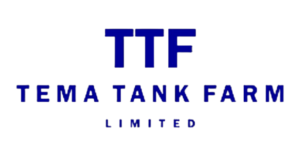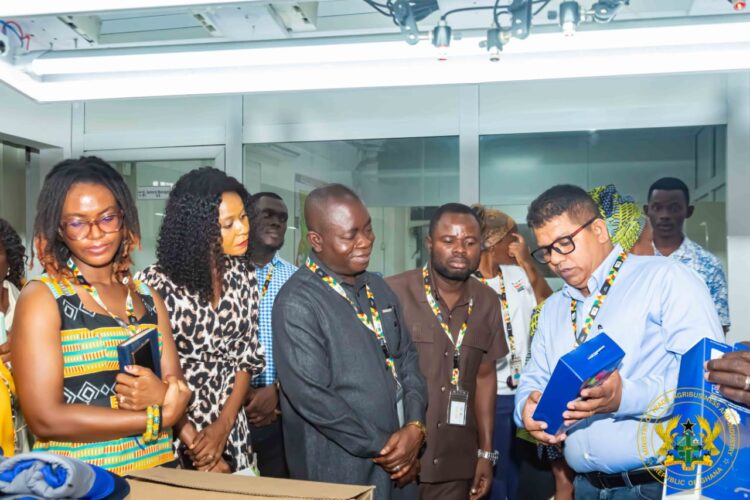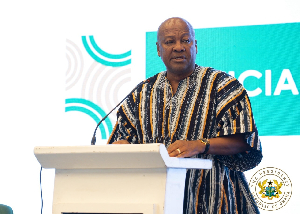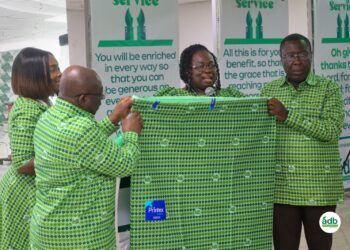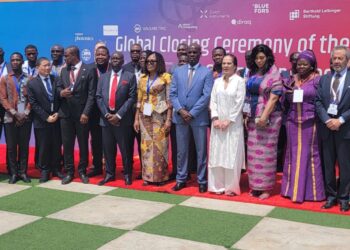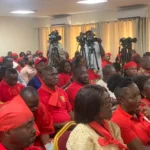The Deputy Minister for Trade, Agribusiness and Industry, Hon. Sampson Ahi, has reiterated government’s strong commitment to supporting Ghana’s textile and garment industry as a key driver of job creation and economic transformation.
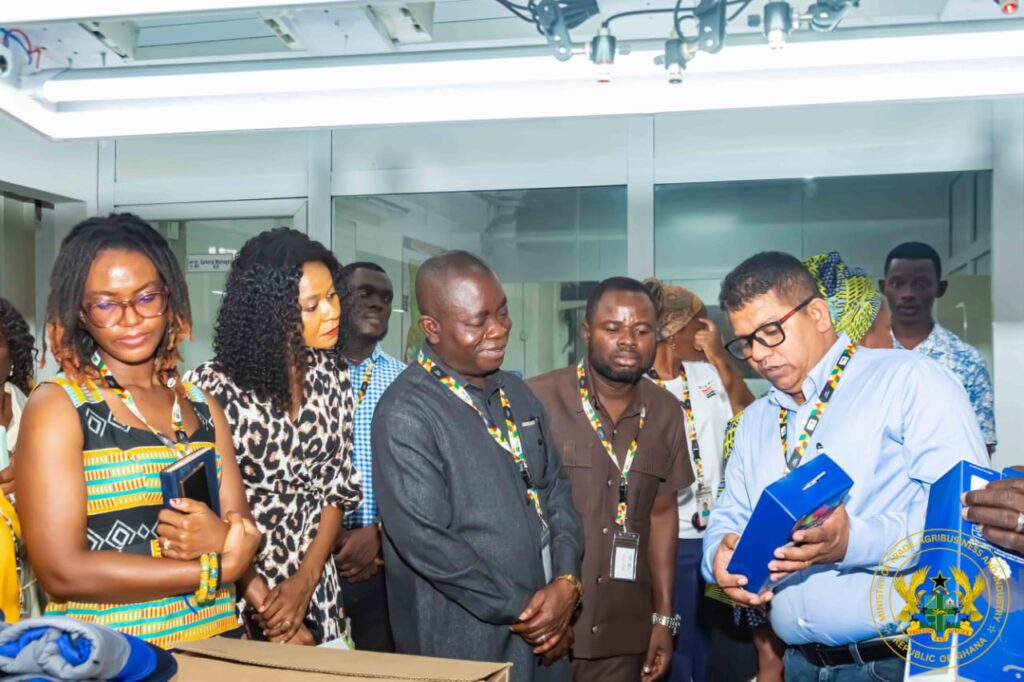
This assurance came during a working visit by the Deputy Minister on Thursday, June 19, 2025, to the Ajabeng textiles and garment enclave in Accra. The visit formed part of efforts to familiarize himself with operations of companies within the enclave and to explore ways the government can further assist them to thrive under strategic policies like the 24-hour economy.
Beginning his tour at the Dignity DTRT Textile Company, Hon. Ahi was warmly received by the Chief Executive Officer, Wasantha Perera, and the Managing Director, Salma Salifu. The company, which currently employs over 6,000 workers and exports exclusively to international brands like Fruit of the Loom, Walmat, etc expressed its enthusiasm for government’s 24-hour economy initiative. According to management, Dignity DTRT already operates in line with this agenda and is eager to expand operations if granted access to adjoining lands.
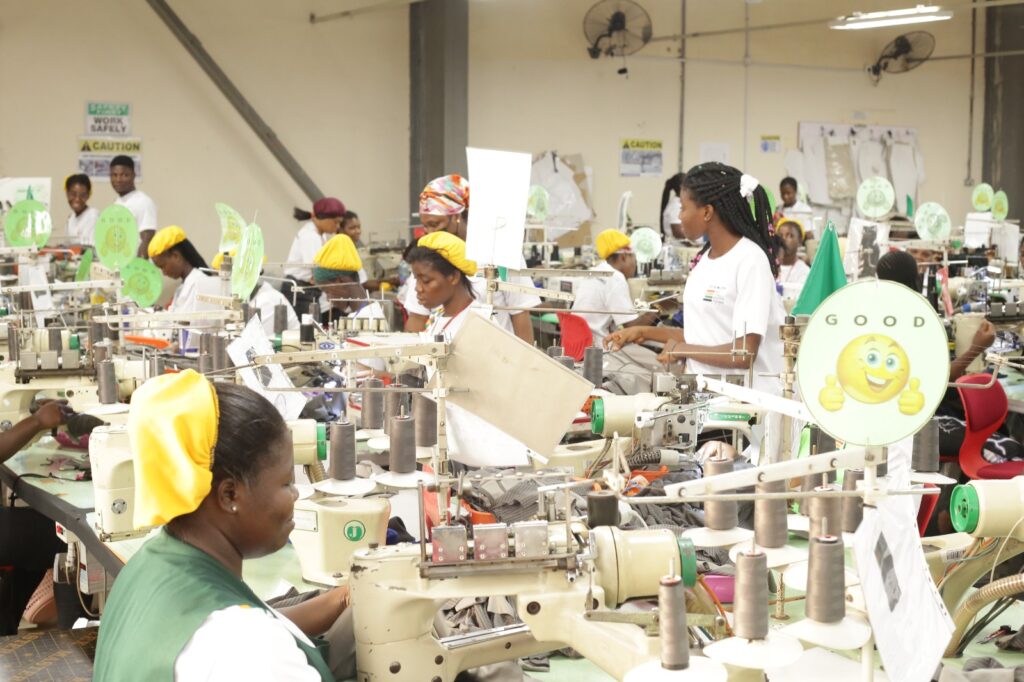
At Sleek Garment Export Ltd, owned by renowned entrepreneur Nora Bannerman, the Deputy Minister was briefed on the company’s achievements and challenges. The company, known for its high-quality exports and its contribution of PPE materials during the COVID-19 pandemic, highlighted its potential to scale up production if supported with space and modern cutting machines. “If you make quality your hallmark, you can never go wrong,” Ms. Bannerman emphasized, adding that internship opportunities are also provided to groom the next generation of garment professionals.
Sixteen/47 owned by Nura Archer, is a vibrant company that produces uniforms for the Ghana Army and engages in occasional exports, also received the Deputy Minister. Management shared challenges regarding trade across West African borders, lamenting that it takes up to seven weeks to transport goods to Nigeria by road due to bureaucratic bottlenecks. They expressed hope that government intervention could ease regional trade and open up new markets.
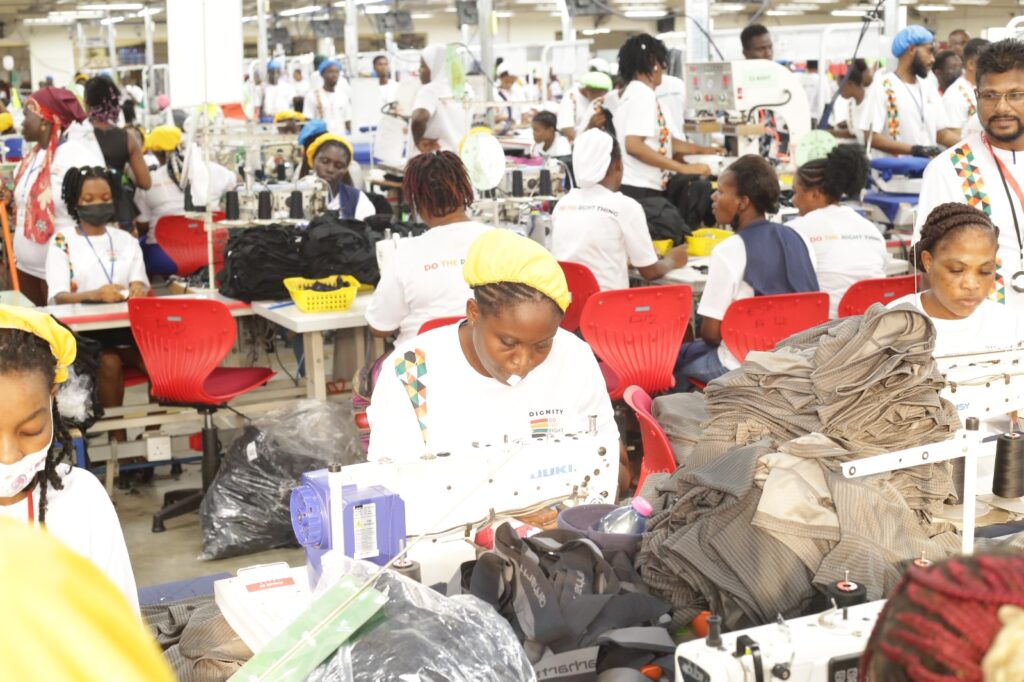
Hon. Ahi’s tour also took him to other key players including Global Garments and Textiles Ltd., Damaris Garments, and Nallem Clothing. All three companies expressed appreciation for the government’s renewed focus and support, pledging to do more in employment generation if granted the necessary assistance.
At Bulluk Ghana Ltd., a firm specializing in traditional and specialized sewing, the
Deputy Minister was impressed by the company’s in-house technical team that ensures machines are constantly operational, enhancing productivity.
Common among all the companies visited was a united call for increased government contracts, expanded access to land, modern machinery, and support for training. Many also advocated for inclusive employment policies, including the consideration of Persons with Disabilities (PWDs), as the government rolls out its 24-hour economy initiative.
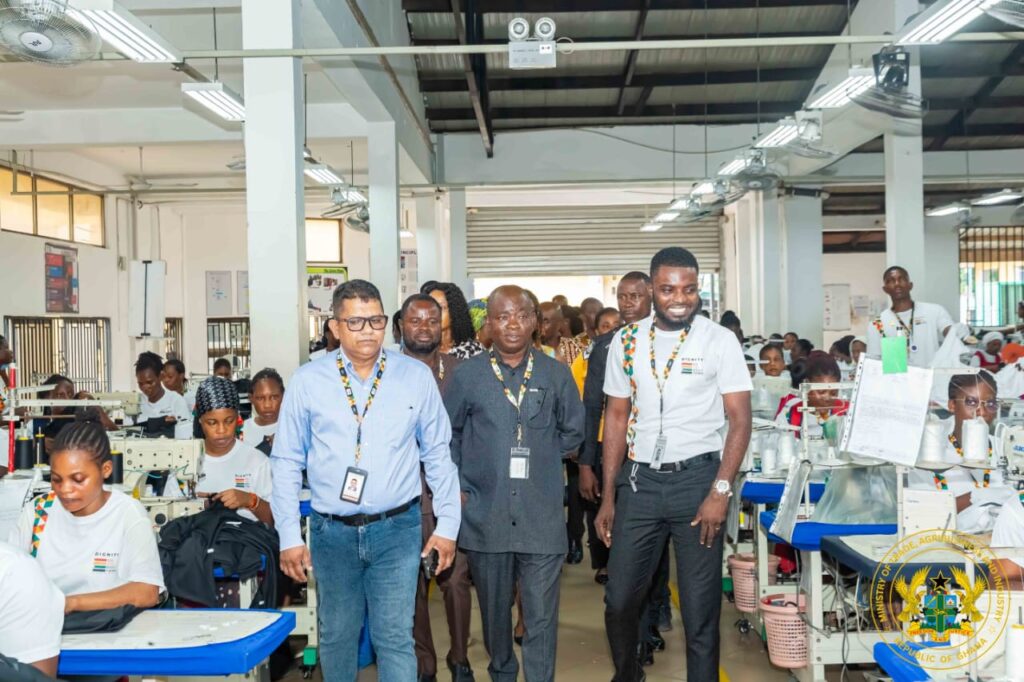
Hon. Ahi, in his remarks, assured the companies that government will explore ways to absorb the training costs of entry-level workers to reduce the burden on smaller factories. “We recognize your role in job creation and national development, and we will work together to ensure a thriving local industry that benefits both businesses and citizens,” he said.
The Deputy Minister’s tour underscored government’s broader agenda of empowering local industries to support national growth, create sustainable jobs, and promote Made-in-Ghana products both locally and internationally.
END
PR & COMMS UPDATES – MoTAI
